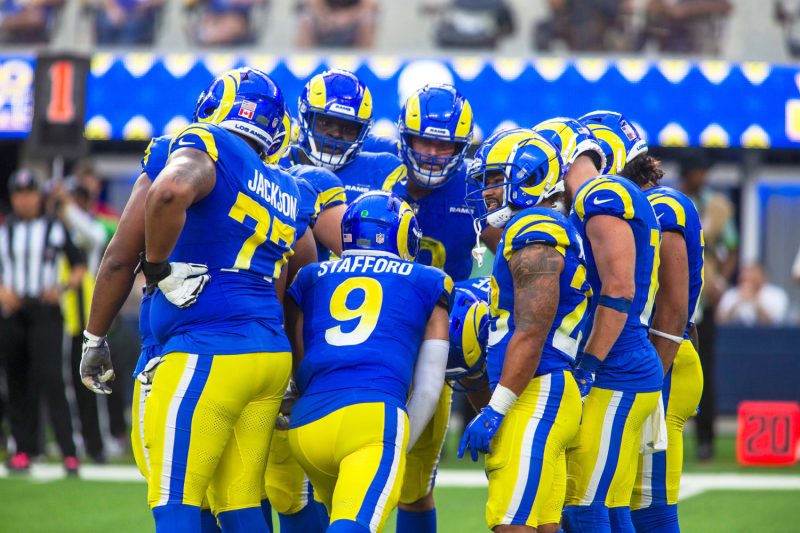In today’s ever-evolving world of professional sports, franchises are an integral part of the business landscape. The value of a sports team goes beyond its performance on the field; it encompasses branding, marketability, and overall appeal to fans and investors alike. When comparing two prominent National Football League (NFL) teams – the Los Angeles Rams and the Los Angeles Chargers – it becomes evident that the Rams hold a significantly higher valuation. This valuation gap of over $2 billion can be attributed to various factors that distinguish these two teams in terms of financial worth and market standing.
One of the primary reasons behind the significant valuation difference between the Rams and the Chargers is their contrasting histories and legacies in the NFL. The Rams have a rich history dating back to the team’s establishment in 1936 in Cleveland. Over the decades, the franchise built a strong fan base and a legacy of success, including a Super Bowl victory in 1999. On the other hand, the Chargers, while being founding members of the AFL in 1960, have had a less illustrious history in terms of championships and overall success. This stark contrast in legacy and historical achievements contributes to the disparate valuations between the two teams.
Furthermore, the Rams have leveraged strategic marketing and branding initiatives to enhance their value and visibility in the sports industry. The team’s relocation from St. Louis to Los Angeles in 2016 not only expanded its market reach but also positioned it in one of the largest media markets in the United States. Additionally, the Rams have invested in state-of-the-art facilities, such as the SoFi Stadium in Inglewood, which serves as a modern and iconic venue for both football games and various entertainment events. These branding efforts have elevated the Rams’ status and appeal, translating into a higher valuation compared to the Chargers.
Another crucial factor contributing to the valuation disparity is the ownership structure and financial backing of the two teams. The Rams are owned by billionaire businessman Stan Kroenke, who has a diversified portfolio of sports and real estate investments. Kroenke’s deep pockets and business acumen have enabled the Rams to make significant acquisitions, such as securing star players and coaches, which not only improve the team’s on-field performance but also enhance its marketability and revenue streams. In contrast, the Chargers are owned by the Spanos family, who, while notable in the football community, do not possess the same level of financial resources and investment capacity as Kroenke, thereby impacting the team’s valuation relative to the Rams.
Moreover, the Rams have cultivated a strong and loyal fan base in the Los Angeles area, further solidifying their market position and revenue-generating potential. The team’s success on the field, coupled with engaging fan experiences and community outreach programs, has endeared them to local supporters and created a robust ecosystem of fan engagement and brand loyalty. In contrast, the Chargers have faced challenges in establishing a similar level of fan support and engagement since their move from San Diego to Los Angeles, thereby affecting their market value and overall standing in the NFL landscape.
In conclusion, the valuation discrepancy of over $2 billion between the Los Angeles Rams and the Los Angeles Chargers can be attributed to a combination of factors, including historical legacy, branding initiatives, ownership structure, and fan engagement. While both teams compete in the same market and league, the Rams have strategically positioned themselves as a premium sports franchise with a strong brand presence, innovative marketing strategies, and a dedicated fan base, all of which contribute to their higher valuation compared to the Chargers. As the NFL continues to evolve and teams navigate the complexities of the modern sports industry, understanding the drivers of franchise valuation becomes essential for stakeholders, investors, and fans alike.


























